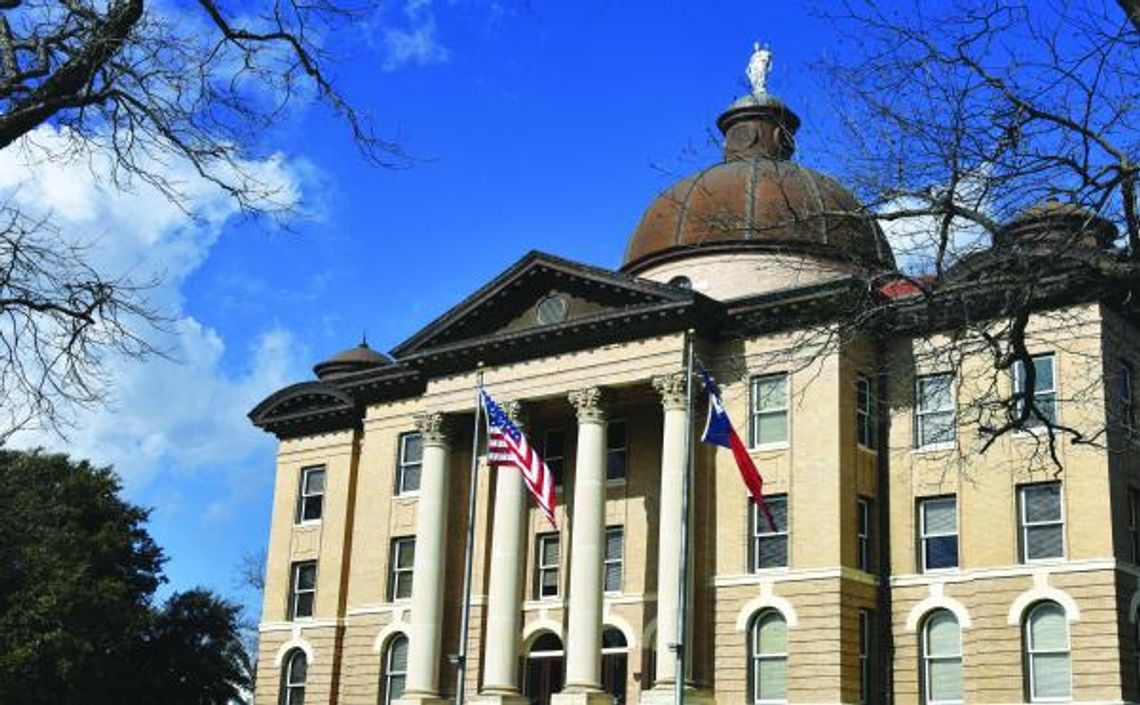Few drivers may be aware that there are cameras in place in town that routinely use license plate recognition software to scan plates, providing information to police in a moment's notice if a vehicle is suspected of being involved in a crime.
Hays County Sheriff’s deputies recently arrested a person who was later charged in connection to a murder after using the Flock Safety License Plate Recognition system.
According to police, a man who had died from a gunshot wound was found at a gas station on Sept. 7. Deputies said that they reviewed surveillance footage and images from one of the nearby Flock Safety LPR cameras to track the vehicle identification of a man who was wanted for questioning at that time in connection to the death of the man at the gas station. Later that day, a deputy spotted the vehicle and, after a brief pursuit, a man was arrested and charged with murder-first degree.
Flock Safety Communications Director Holly Beilin said the company, as a whole, “provides an all-in-one technology solution for cities to run their public safety infrastructure.” She said another way to think about it is as a public safety operating system that “helps connect everything.”
Beilin said that Flock Safety is a company that makes multiple products including gunshot detection systems and situational awareness cameras.
The product that was used in the recent case was an LPR camera, which she said is a motion-activated device that takes a picture of the back of the vehicle when it passes the camera lens.
“The software on the cameras then compares that license plate to different state and national crime databases,” Beilin said. “It’s able to determine if that license plate is associated with a stolen vehicle, a vehicle known to be driven by a known/ wanted offender or a vehicle associated with a missing person.” She added that if the license plate meets those criteria law enforcement are immediately alerted, and if it does not meet those criteria then the information is saved for 30 days–for use in a later investigation, if needed–then permanently deleted.
Beilin said the LPR cameras are used in over 40 states and 3,000 communities. She said different entities across various communities are responsible for procuring the service.
“For some cities, it’s a contract with the city and then the user is the local law enforcement,” Beilin said. “In some cities, it’s actually a contract with the police department or the sheriff’s office, and then we also can sell to private entities. In some areas, a local Chamber of Commerce has funded these cameras and the police are still the end user.”
Beilin said that for those concerned about LPR cameras creating a privacy issue, it is important to stress what the cameras capture and what the data is used for.
“Data is all over the place these days,” Beilin said. “Our cellphones are tracking us. You’re being served ads all over–different things like that. These cameras are only capturing still images of license plates and vehicle details on roadways where there’s no expectation of privacy. And within the system itself, it doesn’t pull up any personally identifiable information.”
She said that the system doesn’t contain information about vehicle registration, social security numbers, dates of birth or names, there is no face recognition, no video cameras and no speed recognition.
.png)












